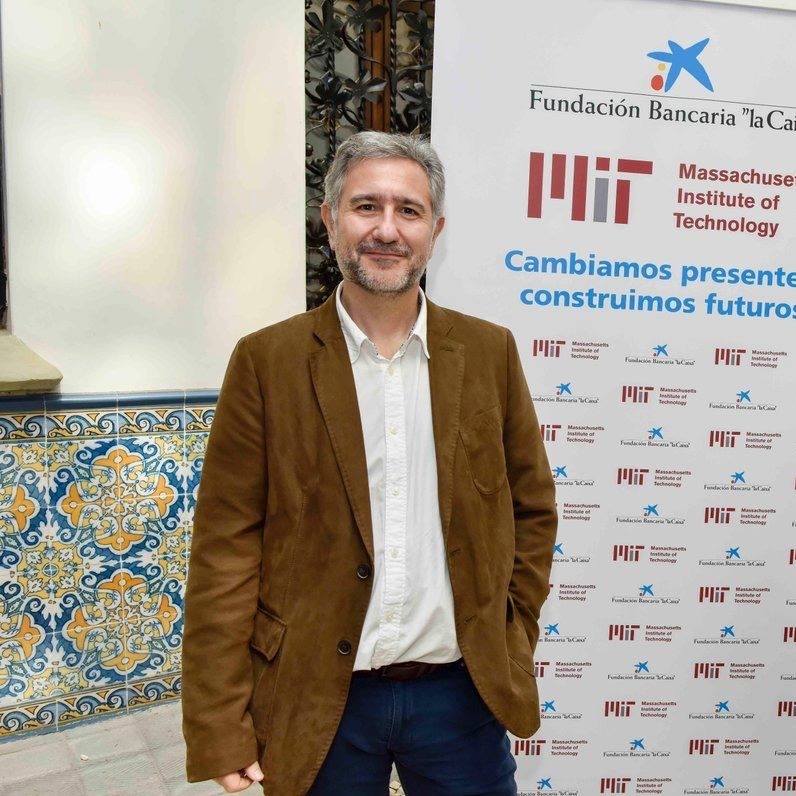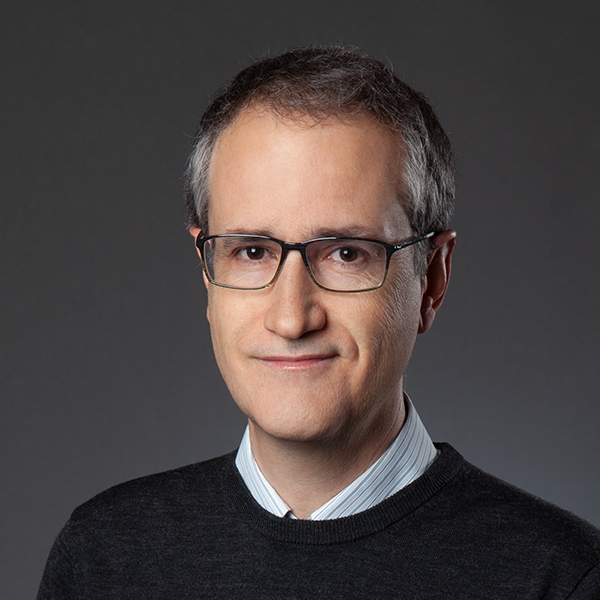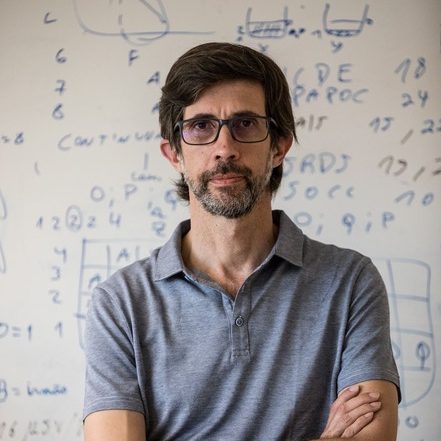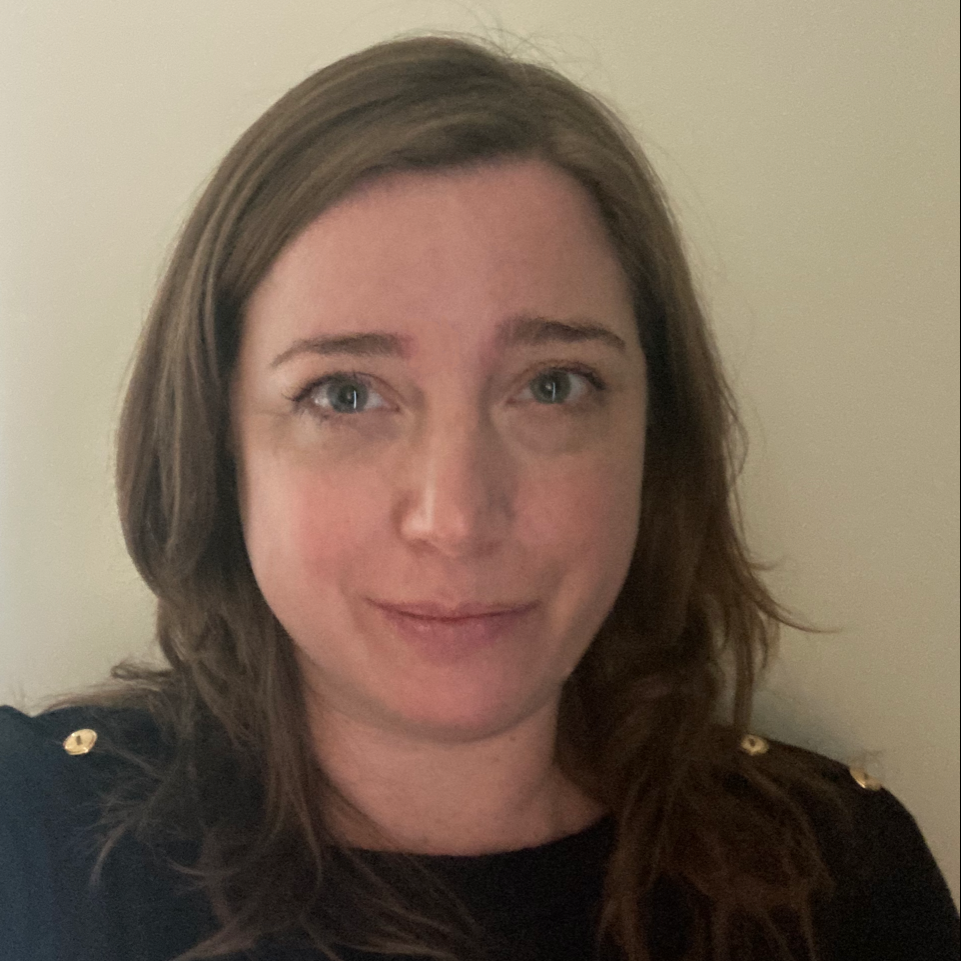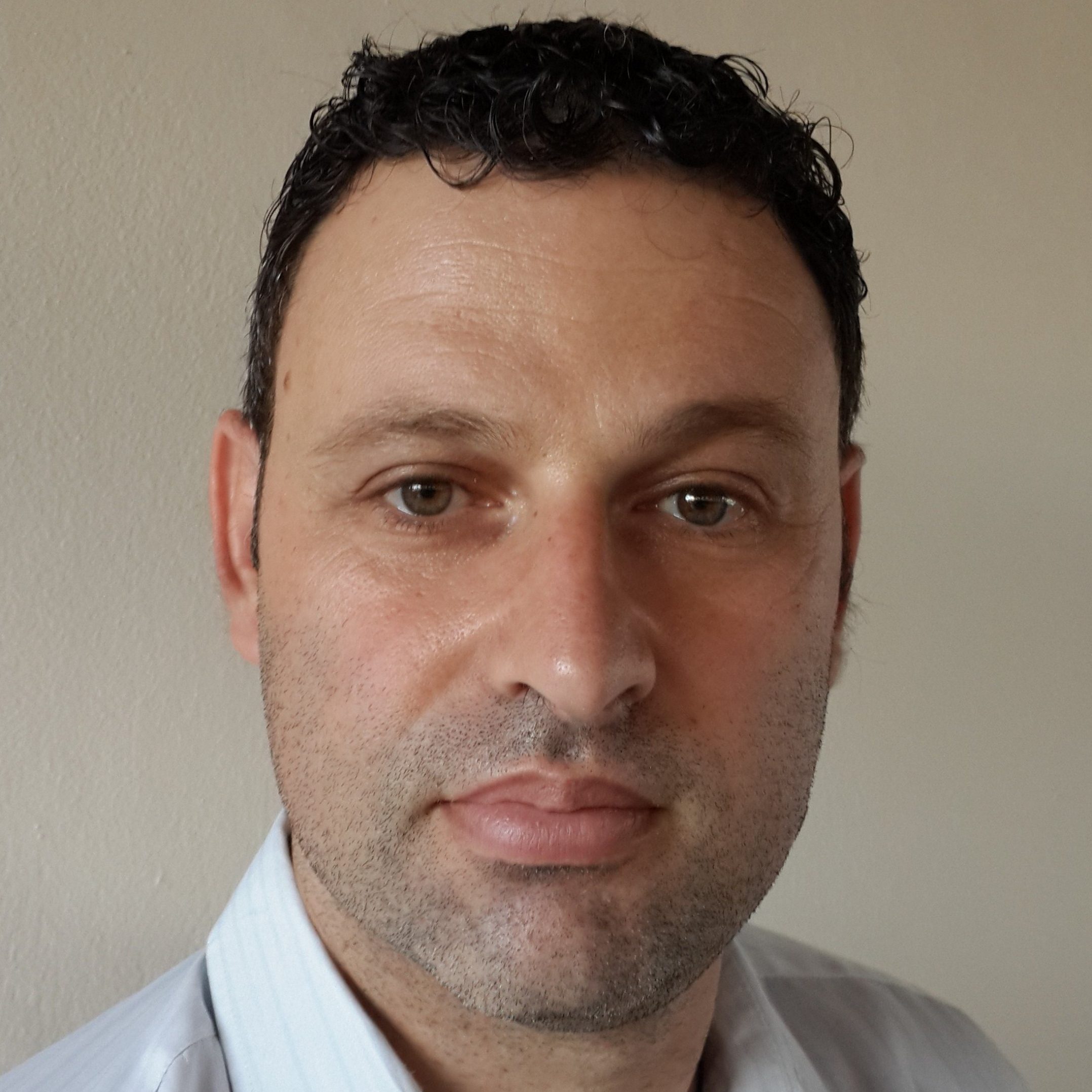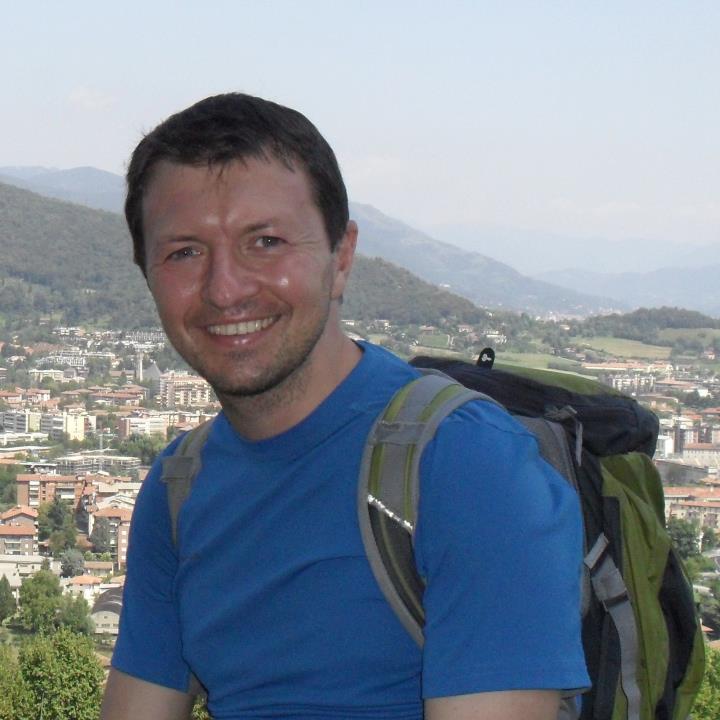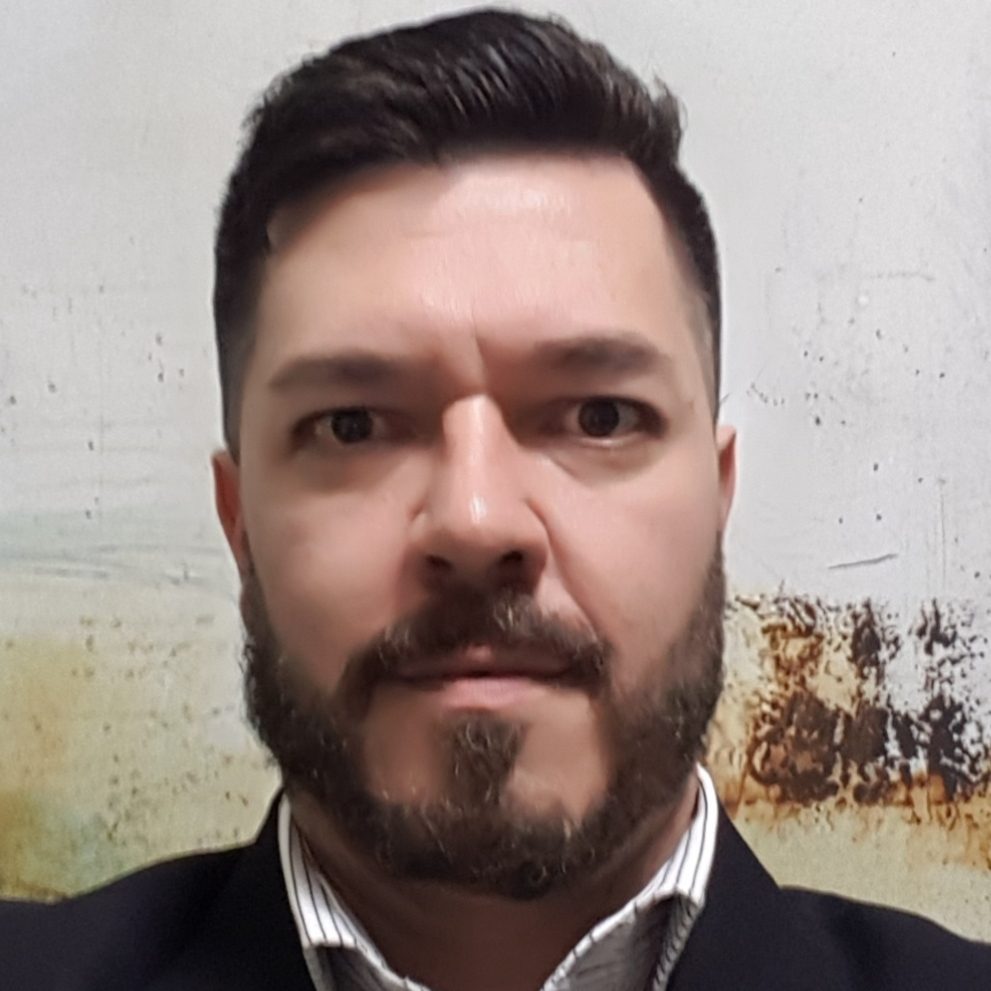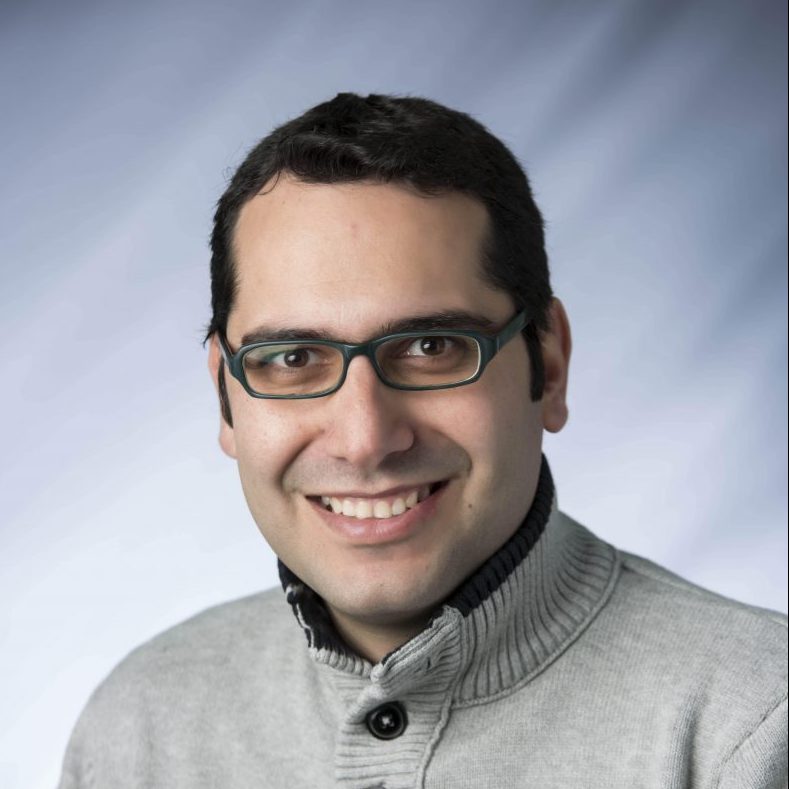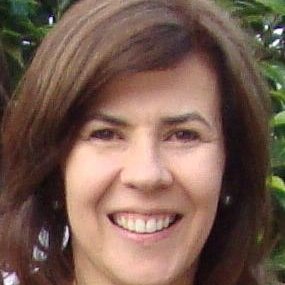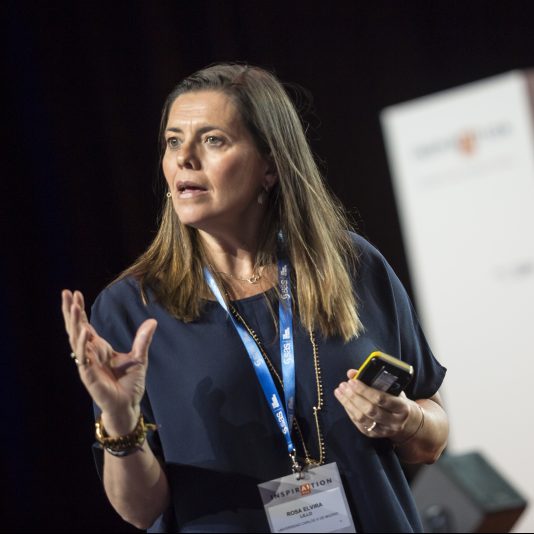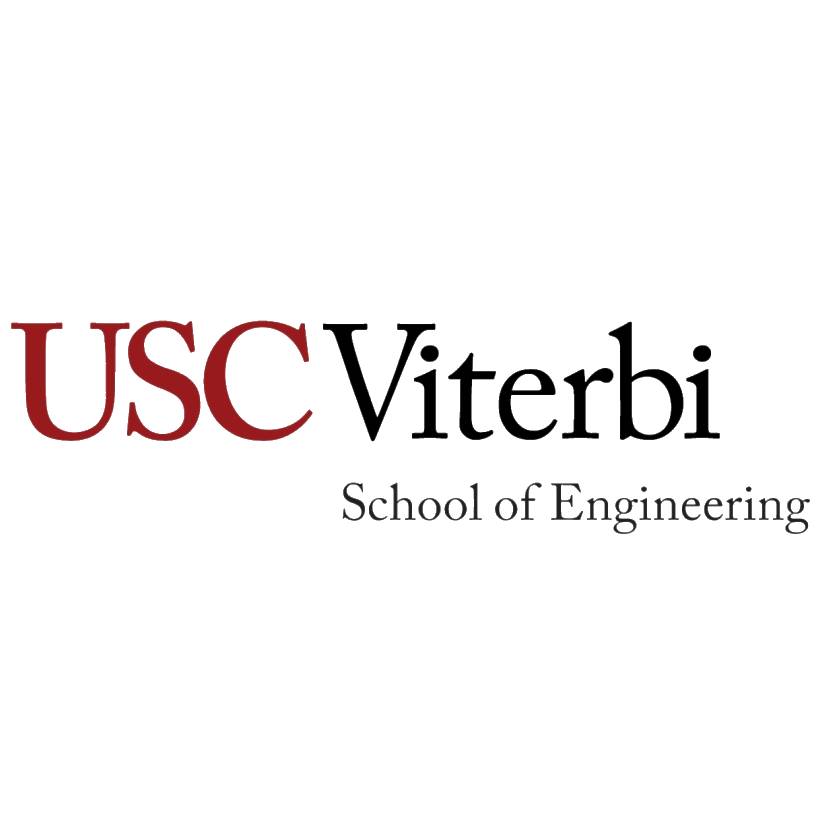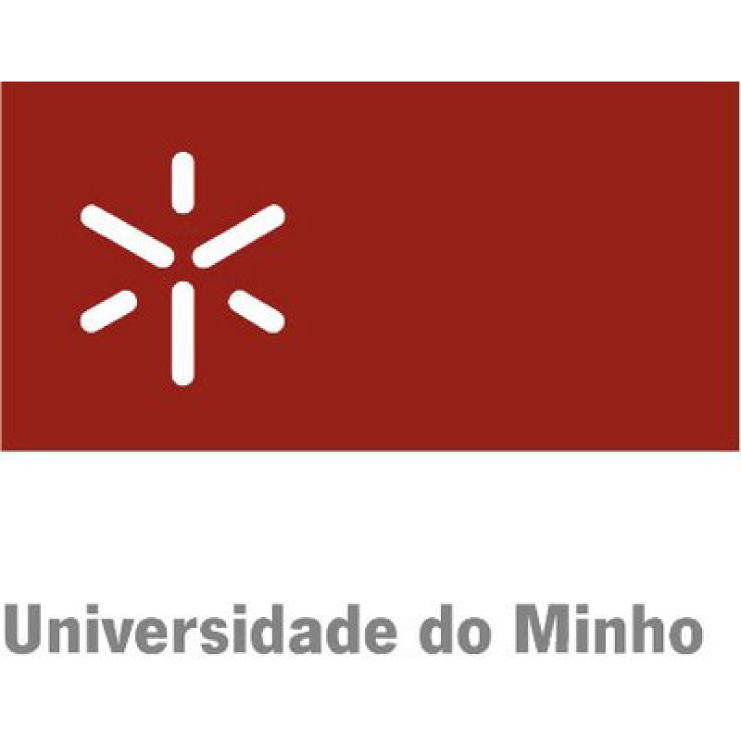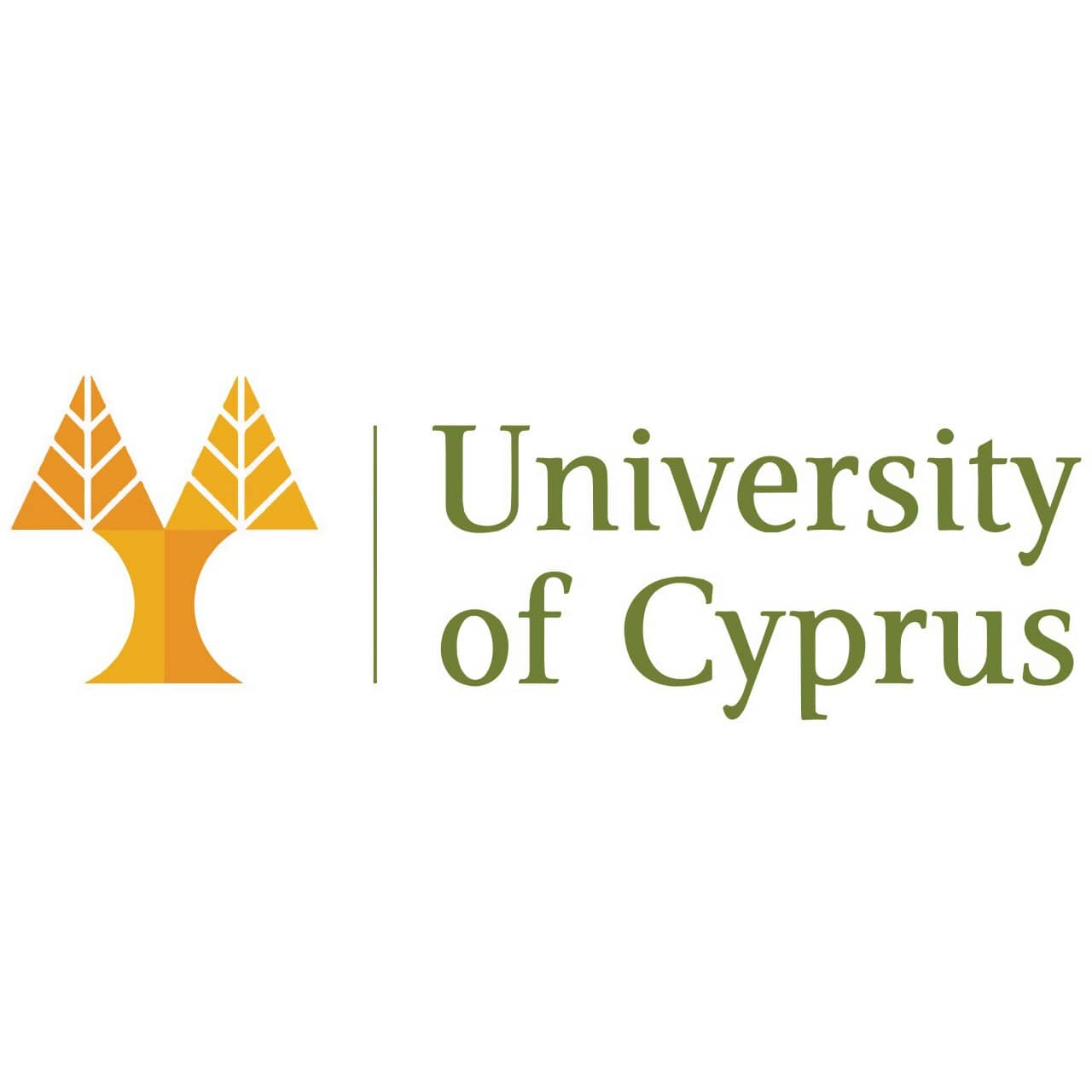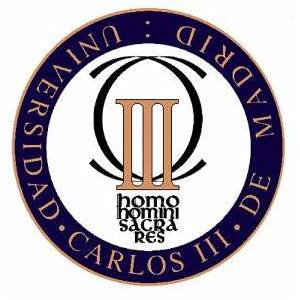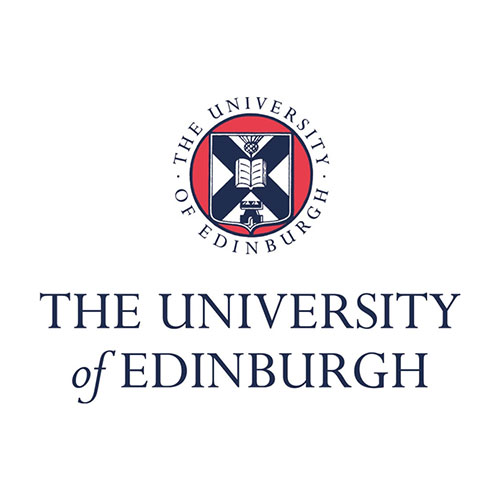The coronasurveys team is multi disciplinary and multi national. Here you will find more details about some of the people contributing to the project, as well as information about their roles.
Carousel example
Amanda García-García
Translation Manager
Amanda García-García received the Ph.D. on Communications Technologies and Systems...Read More
Antonio Fernandez Anta
Project Leader
Professor Antonio Fernández Anta is the project head of Coronasurveys,...Read More
Antonio Ortega
Researcher
Professor Antonio Ortega received his undergraduate and doctoral degrees from...Read More
Carlos Baquero
Data Analyst
Carlos Baquero is an Associate Professor in the Informatics Department,...Read More
Christin A. Glorioso
Dr. Glorioso is an Epidemiologist, Founder of the non-profit science...Read More
Chryssis Georgiou
Ambassador
Chryssis Georgiou is an Associate Professor of Conputer Science at...Read More
Davide Frey
Data Analyist
Davide Frey has been a researcher at Inria Rennes Bretagne-Atlantique since...Read More
Ednaldo José Ferreira
Data Analyist
Ednaldo José Ferreira, Ph.D degree in Computer Science and Computational...Read More
Elisa Cabana
Data Analyist
My name is Elisa Cabana, I am a PhD. in...Read More
Harold A. Hernández Roig
Survey Specialist
Harold A. Hernández Roig He holds a BSc degree in...Read More
J. C Roberts
Web Developer
Dr. Jay Roberts is the Webmaster of Coronasurveys website and...Read More
Nicolas Nicolaou
Ambassador
Nicolas Nicolaou, PhD is a co-founder and a senior scientist...Read More
Paolo Casari
Ambassador
Paolo Casari received the Ph.D. in Information Engineering in 2008...Read More
Paul Patras
Ambassador
I am an Associate Professor/Reader and Chancellor’s Fellow in the School...Read More
Raquel Menezes
Survey Designer
Raquel Menezes is Assistant Professor at the Department of Mathematics...Read More
ROSA ELVIRA LILLO RODRIGUEZ
Ambassador
Rosa E. Lillo obtained her B.A. with Honors and her...Read More
Amanda García-García
Amanda García-García received the Ph.D. on Communications Technologies and Systems at the Technical University of Madrid in 2016. She joined IMDEA Networks Institute, Madrid, in 2017 as a research engineer. Her work includes management and experimental activities carried out at the millimeter-wave networking lab and Global Computing group lab. She provides crucial engineering support to the pre- and post-doc researchers working in these areas in order to advance the development of the lab’s testbed and experimental prototypes. At the same time, she is focused on the development and study of Blockchain APIs as a powerful system of security, connectivity or processing.
Within the Corona Surveys project, she has managed the translation of the survey into more than 50 languages as well as the territorial division of each country.
Antonio Fernandez Anta
Professor Antonio Fernández Anta is the project head of Coronasurveys, and is currently Research Professor at IMDEA Networks. Previously he was a on the Faculty of the Universidad Rey Juan Carlos (URJC), and the Universidad Politécnica de Madrid (UPM), where he received a research performance award. He was a postdoc at MIT (1995-1997), and spent sabbatical years at Bell Labs and MIT Media Lab. He has been awarded the Premio Nacional de Informática “Aritmel” in 2019 and is Mercator Fellow of the SFB MAKI in Germany since 2018. He received his M.Sc. and Ph.D. from the University of Louisiana. He is a Senior Member of ACM and IEEE.
Antonio Ortega
Professor Antonio Ortega received his undergraduate and doctoral degrees from the Universidad Politecnica de Madrid, Madrid, Spain and Columbia University, New York, NY, respectively. In 1994 he joined the Electrical Engineering department at the University of Southern California (USC), where he is currently a Professor and has served as Associate Chair. He is a Fellow of the IEEE and EURASIP, and a member of ACM and APSIPA. He is the Editor-in-Chief of the IEEE Transactions of Signal and Information Processing over Networks and recently served as a member of the Board of Governors of the IEEE Signal Processing Society. He has received several paper awards, including the 2016 Signal Processing Magazine award. His recent research work is focusing on graph signal processing, machine learning, multimedia compression and wireless sensor networks. Over 40 PhD students have completed their PhD thesis under his supervision and his work has led to over 400 publications in international conferences and journals, as well as several patents.
Carlos Baquero
Carlos Baquero is an Associate Professor in the Informatics Department, Universidade do Minho, and an Area Manager at the High Assurance Software Laboratory (HASLab) within INESC TEC. His research interests are in data management, causality tracking and distributed data aggregation. During the COVID-19 pandemic, he teamed with other researchers in network theory, complex systems and statistics to study new approaches to data aggregation and estimation in order to track the pandemic evolution.
Christin A. Glorioso
Dr. Glorioso is an Epidemiologist, Founder of the non-profit science advocacy organization, Academics for the Future of Science, and the Chief Strategist of the Bakar Aging Research Institute at UCSF School of Medicine. She also is the creator of the dashboard https://realscience.community/. She completed her MD and Neuroscience PhD at the University of Pittsburgh and Carnegie Mellon Medical Scientist Training Program and her postdoctoral training at MIT.
Chryssis Georgiou
Chryssis Georgiou is an Associate Professor of Conputer Science at the Universiry of Cyprus. He received a BSc in Mathematics (1998) at the University of Cyprus, and MSc and PhD degrees in Computer Science & Engineering (2002 and 2003) at the University of Connecticut, CT, USA. His research interests span the Theory and Practice of Fault-tolerant Distributed and Parallel Computing with a focus on Algorithms and Complexity. He has published more than 100 articles in journals and conference proceedings in his area of study and he has coauthored two books on Robust Distributed Cooperative Computing. He served on several Program Committees of conferences in Distributed and Parallel Computing and on the Steering Committees of DISC (2008-2010, 2010-2012) and ACM PODC (2014-2015). In 2015 he served as the General Chair of PODC 2015, in 2017 he served as the Track Program Committee co-Chair (Stabilizing Systems: Theory and Practice Track) of SSS 2017, and in 2018 he served as the General co-Chair and PC co-Chair of the workshop ApPLIED 2018 (co-located with PODC 2018) and in 2019 as the General co-Chair of ApPLIED 2019 (co-located with DISC 2019). In 2020 he served as the PC co-Chair of NETYS 2020. As of January 2018, he is on the Editorial Board of Information Processing Letters (subject area: Distributed Computing). Dr. Georgiou’s research has been funded by the University of Cyprus, the Cyprus Research and Innovation Foundation, and the European Commission. More at www.cs.ucy.ac.cy/~chryssis.
He is among the core members of the Coronasurveys Project (coronasurveys.org) and an active ambassador for disseminating the project in Cyprus and Europe.
Davide Frey
Davide Frey has been a researcher at Inria Rennes Bretagne-Atlantique since 2010. He received his PhD from Politecnico di Milano in Italy in 2006; he then worked as a post-doctoral researcher both at Washington University in St Louis (MO), and at Inria Rennes before being recruited as a permanent researcher in 2010. Davide’s research interests focus on the systemic aspects of large-scale distributed systems. Recently, he has also been investigating how decentralization can improve the management and analysis of large quantities of privacy-sensitive data. His contributions span diverse areas such as content dissemination, recommendation systems, privacy, and social networks. He contributes to the Coronasurveys project both as data analyst and as an
Ednaldo José Ferreira
Ednaldo José Ferreira, Ph.D degree in Computer Science and Computational Mathematics at the Institute of Mathematics and Computer Science of the University of São Paulo. Data Science researcher at Embrapa Instrumentation (Brazil – SP), working with research, development and innovation in areas/subareas of Statistics, Artificial Intelligence, Machine Learning and Data Science/Mining focused on agriculture and its food production challenges. The main research themes are related to ensemble modeling, feature selection, optimization, information fusion and computer vision, especially applied to precision agriculture, plant phenotyping, remote sensing and coffee quality. During COVID-19, he teamed with other researchers aiming to apply the data science framework to extract information and insights from surveys for tracking the pandemic evolution as well as spreading the word in Brazil.
Elisa Cabana
My name is Elisa Cabana, I am a PhD. in Mathematical Engineering by the University Carlos III of Madrid. My research there was focused in outlier detection which is a very important field in Statistics and Data Science, because in real data, atypicals might be present, and most of the classical methodologies for extracting information will fail. Therefore, robust methods should be used. We developed a robust approach to detect outliers in multivariate data that outperforms the classical methods and other robust alternatives previously proposed in the literature. We obtained very good performance even with high dimension or large contamination. This research line continues to develop together with the uc3m-Santander Big Data Institute in Madrid. On the other hand, I am currently a postdoc researcher at IMDEA Networks Institute also in Madrid, and I belong to the Data Transparency group where we are involved in H2020 European Projects of high relevance.
Harold A. Hernández Roig
Harold A. Hernández Roig
He holds a BSc degree in Mathematics from Universidad de La Habana (2015) and an MSc degree in Mathematical Engineering from Universidad Carlos III de Madrid (2019). He is currently a Ph.D. student at the Department of Statistics from Universidad Carlos III de Madrid. His research focuses on functional data analysis with an emphasis on the representation of high-dimensional data as functional data. He is also an R programming enthusiast and enjoys tackling machine learning challenges.
J. C Roberts
Dr. Jay Roberts is the Webmaster of Coronasurveys website and is responsible for the design, development, styling and online presence for the project. I have been a part of the Coronasurveys project from the point at which they required a web developer. I manage the online presence and activities for the project, including social media, website development, SEO, and branding. My background is in molecular biology at PhD and MSc levels, but I moved into web development about 10 years ago full time, and I have understandings of virology and epidemiology. Together with the project leaders, and our excellent team who span the globe, we ask that you take the time to look at the research and help us in our quest to further understand the outbreak through non-invasive, anonymous methods. Thank you.
Nicolas Nicolaou
Nicolas Nicolaou, PhD is a co-founder and a senior scientist and algorithms engineer at Algolysis Ltd. He has obtained a PhD in 2011 and an MSc in 2006 from the Department of Computer Science and Engineering at the University of Connecticut, and BSc in Computer Science from the University of Cyprus in 2003. His main research interests lie in the areas of distributed systems, design and analysis of fault-tolerant distributed algorithms, distributed ledgers (blockchains), security for embedded devices and critical infrastructures, and sensor networks. Previously he held positions as a visiting lecturer in the University of Cyprus, and the Cyprus University of Technology, as an IEF Marie Curie Fellow at IMDEA Networks Institute (2014-2016), as a short-term scholar at MIT (2017), and PostDoc Researcher at the KIOS Research Center of Excellence (2017-2018). His work is published in top-tier conferences and journals. During COVID-19, Algolysis’ team collaborated with a group of researchers around the globe to develop the tools and the methodology for tracking the evolution of the pandemic.
Paolo Casari
Paolo Casari received the Ph.D. in Information Engineering in 2008 from the University of Padova, Italy. He was on leave at the Massachusetts Institute of Technology in 2007, working on underwater communications and networks. He collaborated to several funded projects under the umbrella of EU’s framework programs the EU Defence Agency, and the NATO SPS program. He is the PI of the NATO SPS project ThreatDetect, and was the scientific coordinator of the EU H2020 RECAP project. In 2015, he joined the IMDEA Networks Institute, Madrid, Spain, where he led the Ubiquitous Wireless Networks group. Starting late 2019, he joined the faculty at the Department of Information Engineering and Computer Science, University of Trento, Italy. Dr. Casari regularly serves in the organizing committees of several international conferences. He also serves on the editorial boards of the IEEE Transactions on Mobile Computing and of the IEEE Transactions on Wireless Communications, and has been guest editor of a special issue of IEEE Access on “Underwater Acoustic Communications and Networking”. He received two best paper awards. His research interests include many aspects of networked communications, such as channel modeling, network protocol design, localization, simulation, and experimental evaluations
Paul Patras
I am an Associate Professor/Reader and Chancellor’s Fellow in the School of Informatics at the University of Edinburgh. I am also co-founder and co-CEO of Net AI, a university spin-out whose mission is to put mobile network management in the cloud and on autopilot.
I lead the Mobile Intelligence Lab and the Informatics Internet of Things research programme. I am a member of the Institute for Computing Systems Architecture (ICSA) and I am also affiliated to the Security & Privacy group.
Before joining Edinburgh, I was a research fellow at the Hamilton Institute of the National University of Ireland, Maynooth. Between 2007–2011 I was a research assistant at IMDEA Networks (Madrid Institute for Advanced Studies in Networks). I held visiting research positions at the University of Brescia (2017, 2015), Northeastern University (2016), Technical University Darmstadt (2016), and Rice University (2010).
I hold a Ph.D. and an M.Sc. in Telematics Engineering from University Carlos III of Madrid, and a Dipl.Eng. degree from the Technical University of Cluj-Napoca, Romania.
My research seeks to bridge the gap between fundamental mathematical models and real-world applications of networked systems. I focus on problems related to artificial intelligence in mobile networks, traffic analytics, performance optimisation, security and privacy, prototyping and test beds.
Raquel Menezes
Raquel Menezes is Assistant Professor at the Department of Mathematics of Minho University, member of its Research Center of Mathematics, and collaborator of the Research Centre of Statistics and its Applications of Lisbon University (CEAUL). Her main research interest is Spatial Statistics, primarily Geostatistics, also working on topics as non-parametric curves estimation and analysis of Spatio-Temporal data. She has supervised 5 PhD students and more than 15 master students in Statistics. She has been acting as principal investigator of projects funded by the Portuguese National Funding Agency for Science, Research and Technology, and being member of other funded projects.
ROSA ELVIRA LILLO RODRIGUEZ
Rosa E. Lillo obtained her B.A. with Honors and her Ph.D. in Mathematics from Universidad Complutense (Madrid) in 1992 and 1996, respectively. She has been Associate Professor in Universidad Carlos III de Madrid, where she is Professor of Statistics and Operations Research since 2010. She was also a visiting professor in The University of California (Berkeley) and in The University of Arizona, (Tucson). She has been Vice-Dean for the Degree in Statistics and Business from 2005 until 2015, and also Head of the Statistics Department (2015-2018). Since September 2018, she is in charge of the uc3m-Santander Big Data Institute (www.ibidat.es). She obtained a Young Investigator Award for Research Excellence (Banco Santander) in 2012. Since 2005 she has received several awards for her teaching and research work. Since 2014 she is a member of several ANECA evaluation committees. She has been responsible for organizing several international conferences and workshops and she has also given seminars and courses in other universities. She has published more than 70 research papers in journals in the areas of Statistics, Probability and Operations Research and their applications. She has been advisor of 16 Ph.D. students, and 5 more students are currently under her supervision. Prof. Lillo has led and collaborated in more than 40 research projects funded by regional, national, European and private funds. In addition to the research work, it is worth highlighting that she is the creator of the “STAT WARS” events whose purpose is to show Statistics to everybody and to make it attractive to young people. Such event has already acquired a national and international dimension.
Grid 2:
Amanda García-García
Amanda García-García received the Ph.D. on Communications Technologies and Systems at the Technical University of Madrid in 2016. She joined IMDEA Networks Institute, Madrid, in 2017 as a research engineer. Her work includes management and experimental activities carried out at the millimeter-wave networking lab and Global Computing group lab. She provides crucial engineering support to the pre- and post-doc researchers working in these areas in order to advance the development of the lab’s testbed and experimental prototypes. At the same time, she is focused on the development and study of Blockchain APIs as a powerful system of security, connectivity or processing.
Within the Corona Surveys project, she has managed the translation of the survey into more than 50 languages as well as the territorial division of each country.
Amanda García-García
Amanda García-García received the Ph.D. on Communications Technologies and Systems at the Technical University of Madrid in 2016. She joined IMDEA Networks Institute, Madrid, in 2017 as a research engineer.
Antonio Fernandez Anta
Professor Antonio Fernández Anta is the project head of Coronasurveys, and is currently Research Professor at IMDEA Networks. Previously he was a on the Faculty of the Universidad Rey Juan Carlos (URJC), and the Universidad Politécnica de Madrid (UPM), where he received a research performance award. He was a postdoc at MIT (1995-1997), and spent sabbatical years at Bell Labs and MIT Media Lab. He has been awarded the Premio Nacional de Informática “Aritmel” in 2019 and is Mercator Fellow of the SFB MAKI in Germany since 2018. He received his M.Sc. and Ph.D. from the University of Louisiana. He is a Senior Member of ACM and IEEE.
Antonio Fernandez Anta
Professor Antonio Fernández Anta is the project head of Coronasurveys, and is currently Research Professor at IMDEA Networks. Previously he was a on the Faculty of the Universidad Rey Juan Carlos (URJC), and the Universidad Politécnica de Madrid (UPM), where he received a research performance award.
Antonio Ortega
Professor Antonio Ortega received his undergraduate and doctoral degrees from the Universidad Politecnica de Madrid, Madrid, Spain and Columbia University, New York, NY, respectively. In 1994 he joined the Electrical Engineering department at the University of Southern California (USC), where he is currently a Professor and has served as Associate Chair. He is a Fellow of the IEEE and EURASIP, and a member of ACM and APSIPA. He is the Editor-in-Chief of the IEEE Transactions of Signal and Information Processing over Networks and recently served as a member of the Board of Governors of the IEEE Signal Processing Society. He has received several paper awards, including the 2016 Signal Processing Magazine award. His recent research work is focusing on graph signal processing, machine learning, multimedia compression and wireless sensor networks. Over 40 PhD students have completed their PhD thesis under his supervision and his work has led to over 400 publications in international conferences and journals, as well as several patents.
Antonio Ortega
Professor Antonio Ortega received his undergraduate and doctoral degrees from the Universidad Politecnica de Madrid, Madrid, Spain and Columbia University, New York, NY, respectively.
Carlos Baquero
Carlos Baquero is an Associate Professor in the Informatics Department, Universidade do Minho, and an Area Manager at the High Assurance Software Laboratory (HASLab) within INESC TEC. His research interests are in data management, causality tracking and distributed data aggregation. During the COVID-19 pandemic, he teamed with other researchers in network theory, complex systems and statistics to study new approaches to data aggregation and estimation in order to track the pandemic evolution.
Carlos Baquero
Carlos Baquero is an Associate Professor in the Informatics Department, Universidade do Minho, and an Area Manager at the High Assurance Software Laboratory (HASLab) within INESC TEC.
Christin A. Glorioso
Dr. Glorioso is an Epidemiologist, Founder of the non-profit science advocacy organization, Academics for the Future of Science, and the Chief Strategist of the Bakar Aging Research Institute at UCSF School of Medicine. She also is the creator of the dashboard https://realscience.community/. She completed her MD and Neuroscience PhD at the University of Pittsburgh and Carnegie Mellon Medical Scientist Training Program and her postdoctoral training at MIT.
Christin A. Glorioso
Dr. Glorioso is an Epidemiologist, Founder of the non-profit science advocacy organization, Academics for the Future of Science, and the Chief Strategist of the Bakar Aging Research Institute at UCSF School of Medicine.
Chryssis Georgiou
Chryssis Georgiou is an Associate Professor of Conputer Science at the Universiry of Cyprus. He received a BSc in Mathematics (1998) at the University of Cyprus, and MSc and PhD degrees in Computer Science & Engineering (2002 and 2003) at the University of Connecticut, CT, USA. His research interests span the Theory and Practice of Fault-tolerant Distributed and Parallel Computing with a focus on Algorithms and Complexity. He has published more than 100 articles in journals and conference proceedings in his area of study and he has coauthored two books on Robust Distributed Cooperative Computing. He served on several Program Committees of conferences in Distributed and Parallel Computing and on the Steering Committees of DISC (2008-2010, 2010-2012) and ACM PODC (2014-2015). In 2015 he served as the General Chair of PODC 2015, in 2017 he served as the Track Program Committee co-Chair (Stabilizing Systems: Theory and Practice Track) of SSS 2017, and in 2018 he served as the General co-Chair and PC co-Chair of the workshop ApPLIED 2018 (co-located with PODC 2018) and in 2019 as the General co-Chair of ApPLIED 2019 (co-located with DISC 2019). In 2020 he served as the PC co-Chair of NETYS 2020. As of January 2018, he is on the Editorial Board of Information Processing Letters (subject area: Distributed Computing). Dr. Georgiou’s research has been funded by the University of Cyprus, the Cyprus Research and Innovation Foundation, and the European Commission. More at www.cs.ucy.ac.cy/~chryssis.
He is among the core members of the Coronasurveys Project (coronasurveys.org) and an active ambassador for disseminating the project in Cyprus and Europe.
Chryssis Georgiou
Chryssis Georgiou is an Associate Professor of Conputer Science at the Universiry of Cyprus. He received a BSc in Mathematics (1998) at the University of Cyprus, and MSc and PhD degrees in Computer Science & Engineering (2002 and 2003) at the University of Connecticut, CT, USA.
Davide Frey
Davide Frey has been a researcher at Inria Rennes Bretagne-Atlantique since 2010. He received his PhD from Politecnico di Milano in Italy in 2006; he then worked as a post-doctoral researcher both at Washington University in St Louis (MO), and at Inria Rennes before being recruited as a permanent researcher in 2010. Davide’s research interests focus on the systemic aspects of large-scale distributed systems. Recently, he has also been investigating how decentralization can improve the management and analysis of large quantities of privacy-sensitive data. His contributions span diverse areas such as content dissemination, recommendation systems, privacy, and social networks. He contributes to the Coronasurveys project both as data analyst and as an
Davide Frey
Davide Frey has been a researcher at Inria Rennes Bretagne-Atlantique since 2010. He received his PhD from Politecnico di Milano in Italy in 2006; he then worked as a post-doctoral researcher both at Washington University in St Louis (MO), and at Inria Rennes before being recruited as a permanent researcher in 2010.
Ednaldo José Ferreira
Ednaldo José Ferreira, Ph.D degree in Computer Science and Computational Mathematics at the Institute of Mathematics and Computer Science of the University of São Paulo. Data Science researcher at Embrapa Instrumentation (Brazil – SP), working with research, development and innovation in areas/subareas of Statistics, Artificial Intelligence, Machine Learning and Data Science/Mining focused on agriculture and its food production challenges. The main research themes are related to ensemble modeling, feature selection, optimization, information fusion and computer vision, especially applied to precision agriculture, plant phenotyping, remote sensing and coffee quality. During COVID-19, he teamed with other researchers aiming to apply the data science framework to extract information and insights from surveys for tracking the pandemic evolution as well as spreading the word in Brazil.
Ednaldo José Ferreira
Ednaldo José Ferreira, Ph.D degree in Computer Science and Computational Mathematics at the Institute of Mathematics and Computer Science of the University of São Paulo.
Elisa Cabana
My name is Elisa Cabana, I am a PhD. in Mathematical Engineering by the University Carlos III of Madrid. My research there was focused in outlier detection which is a very important field in Statistics and Data Science, because in real data, atypicals might be present, and most of the classical methodologies for extracting information will fail. Therefore, robust methods should be used. We developed a robust approach to detect outliers in multivariate data that outperforms the classical methods and other robust alternatives previously proposed in the literature. We obtained very good performance even with high dimension or large contamination. This research line continues to develop together with the uc3m-Santander Big Data Institute in Madrid. On the other hand, I am currently a postdoc researcher at IMDEA Networks Institute also in Madrid, and I belong to the Data Transparency group where we are involved in H2020 European Projects of high relevance.
Elisa Cabana
My name is Elisa Cabana, I am a PhD. in Mathematical Engineering by the University Carlos III of Madrid. My research there was focused in outlier detection which is a very important field in Statistics and Data Science, because in real data, atypicals might be present, and most of the classical methodologies for extracting information will fail.
Harold A. Hernández Roig
Harold A. Hernández Roig
He holds a BSc degree in Mathematics from Universidad de La Habana (2015) and an MSc degree in Mathematical Engineering from Universidad Carlos III de Madrid (2019). He is currently a Ph.D. student at the Department of Statistics from Universidad Carlos III de Madrid. His research focuses on functional data analysis with an emphasis on the representation of high-dimensional data as functional data. He is also an R programming enthusiast and enjoys tackling machine learning challenges.
Harold A. Hernández Roig
Harold A. Hernández Roig
He holds a BSc degree in Mathematics from Universidad de La Habana (2015) and an MSc degree in Mathematical Engineering from Universidad Carlos III de Madrid (2019).
J. C Roberts
Dr. Jay Roberts is the Webmaster of Coronasurveys website and is responsible for the design, development, styling and online presence for the project. I have been a part of the Coronasurveys project from the point at which they required a web developer. I manage the online presence and activities for the project, including social media, website development, SEO, and branding. My background is in molecular biology at PhD and MSc levels, but I moved into web development about 10 years ago full time, and I have understandings of virology and epidemiology. Together with the project leaders, and our excellent team who span the globe, we ask that you take the time to look at the research and help us in our quest to further understand the outbreak through non-invasive, anonymous methods. Thank you.
J. C Roberts
Dr. Jay Roberts is the Webmaster of Coronasurveys website and is responsible for the design, development, styling and online presence for the project.
Nicolas Nicolaou
Nicolas Nicolaou, PhD is a co-founder and a senior scientist and algorithms engineer at Algolysis Ltd. He has obtained a PhD in 2011 and an MSc in 2006 from the Department of Computer Science and Engineering at the University of Connecticut, and BSc in Computer Science from the University of Cyprus in 2003. His main research interests lie in the areas of distributed systems, design and analysis of fault-tolerant distributed algorithms, distributed ledgers (blockchains), security for embedded devices and critical infrastructures, and sensor networks. Previously he held positions as a visiting lecturer in the University of Cyprus, and the Cyprus University of Technology, as an IEF Marie Curie Fellow at IMDEA Networks Institute (2014-2016), as a short-term scholar at MIT (2017), and PostDoc Researcher at the KIOS Research Center of Excellence (2017-2018). His work is published in top-tier conferences and journals. During COVID-19, Algolysis’ team collaborated with a group of researchers around the globe to develop the tools and the methodology for tracking the evolution of the pandemic.
Nicolas Nicolaou
Nicolas Nicolaou, PhD is a co-founder and a senior scientist and algorithms engineer at Algolysis Ltd. He has obtained a PhD in 2011 and an MSc in 2006 from the Department of Computer Science and Engineering at the University of Connecticut, and BSc in Computer Science from the University of Cyprus in 2003.
Paolo Casari
Paolo Casari received the Ph.D. in Information Engineering in 2008 from the University of Padova, Italy. He was on leave at the Massachusetts Institute of Technology in 2007, working on underwater communications and networks. He collaborated to several funded projects under the umbrella of EU’s framework programs the EU Defence Agency, and the NATO SPS program. He is the PI of the NATO SPS project ThreatDetect, and was the scientific coordinator of the EU H2020 RECAP project. In 2015, he joined the IMDEA Networks Institute, Madrid, Spain, where he led the Ubiquitous Wireless Networks group. Starting late 2019, he joined the faculty at the Department of Information Engineering and Computer Science, University of Trento, Italy. Dr. Casari regularly serves in the organizing committees of several international conferences. He also serves on the editorial boards of the IEEE Transactions on Mobile Computing and of the IEEE Transactions on Wireless Communications, and has been guest editor of a special issue of IEEE Access on “Underwater Acoustic Communications and Networking”. He received two best paper awards. His research interests include many aspects of networked communications, such as channel modeling, network protocol design, localization, simulation, and experimental evaluations
Paolo Casari
Paolo Casari received the Ph.D. in Information Engineering in 2008 from the University of Padova, Italy. He was on leave at the Massachusetts Institute of Technology in 2007, working on underwater communications and networks.
Paul Patras
I am an Associate Professor/Reader and Chancellor’s Fellow in the School of Informatics at the University of Edinburgh. I am also co-founder and co-CEO of Net AI, a university spin-out whose mission is to put mobile network management in the cloud and on autopilot.
I lead the Mobile Intelligence Lab and the Informatics Internet of Things research programme. I am a member of the Institute for Computing Systems Architecture (ICSA) and I am also affiliated to the Security & Privacy group.
Before joining Edinburgh, I was a research fellow at the Hamilton Institute of the National University of Ireland, Maynooth. Between 2007–2011 I was a research assistant at IMDEA Networks (Madrid Institute for Advanced Studies in Networks). I held visiting research positions at the University of Brescia (2017, 2015), Northeastern University (2016), Technical University Darmstadt (2016), and Rice University (2010).
I hold a Ph.D. and an M.Sc. in Telematics Engineering from University Carlos III of Madrid, and a Dipl.Eng. degree from the Technical University of Cluj-Napoca, Romania.
My research seeks to bridge the gap between fundamental mathematical models and real-world applications of networked systems. I focus on problems related to artificial intelligence in mobile networks, traffic analytics, performance optimisation, security and privacy, prototyping and test beds.
Paul Patras
I am an Associate Professor/Reader and Chancellor’s Fellow in the School of Informatics at the University of Edinburgh.
Raquel Menezes
Raquel Menezes is Assistant Professor at the Department of Mathematics of Minho University, member of its Research Center of Mathematics, and collaborator of the Research Centre of Statistics and its Applications of Lisbon University (CEAUL). Her main research interest is Spatial Statistics, primarily Geostatistics, also working on topics as non-parametric curves estimation and analysis of Spatio-Temporal data. She has supervised 5 PhD students and more than 15 master students in Statistics. She has been acting as principal investigator of projects funded by the Portuguese National Funding Agency for Science, Research and Technology, and being member of other funded projects.
Raquel Menezes
Raquel Menezes is Assistant Professor at the Department of Mathematics of Minho University, member of its Research Center of Mathematics, and collaborator of the Research Centre of Statistics and its Applications of Lisbon University (CEAUL).
ROSA ELVIRA LILLO RODRIGUEZ
Rosa E. Lillo obtained her B.A. with Honors and her Ph.D. in Mathematics from Universidad Complutense (Madrid) in 1992 and 1996, respectively. She has been Associate Professor in Universidad Carlos III de Madrid, where she is Professor of Statistics and Operations Research since 2010. She was also a visiting professor in The University of California (Berkeley) and in The University of Arizona, (Tucson). She has been Vice-Dean for the Degree in Statistics and Business from 2005 until 2015, and also Head of the Statistics Department (2015-2018). Since September 2018, she is in charge of the uc3m-Santander Big Data Institute (www.ibidat.es). She obtained a Young Investigator Award for Research Excellence (Banco Santander) in 2012. Since 2005 she has received several awards for her teaching and research work. Since 2014 she is a member of several ANECA evaluation committees. She has been responsible for organizing several international conferences and workshops and she has also given seminars and courses in other universities. She has published more than 70 research papers in journals in the areas of Statistics, Probability and Operations Research and their applications. She has been advisor of 16 Ph.D. students, and 5 more students are currently under her supervision. Prof. Lillo has led and collaborated in more than 40 research projects funded by regional, national, European and private funds. In addition to the research work, it is worth highlighting that she is the creator of the “STAT WARS” events whose purpose is to show Statistics to everybody and to make it attractive to young people. Such event has already acquired a national and international dimension.
ROSA ELVIRA LILLO RODRIGUEZ
Rosa E. Lillo obtained her B.A. with Honors and her Ph.D. in Mathematics from Universidad Complutense (Madrid) in 1992 and 1996, respectively.
List:
Amanda García-García
Translation Manager
Amanda García-García received the Ph.D. on Communications Technologies and Systems at the Technical University of Madrid in 2016. She joined IMDEA Networks Institute, Madrid, in 2017 as a research engineer....
Antonio Fernandez Anta
Project Leader
Professor Antonio Fernández Anta is the project head of Coronasurveys, and is currently Research Professor at IMDEA Networks. Previously he was a on the Faculty of the Universidad Rey Juan...
Antonio Ortega
Researcher
Professor Antonio Ortega received his undergraduate and doctoral degrees from the Universidad Politecnica de Madrid, Madrid, Spain and Columbia University, New York, NY, respectively. » Read more about Antonio Ortega »
Carlos Baquero
Data Analyst
Carlos Baquero is an Associate Professor in the Informatics Department, Universidade do Minho, and an Area Manager at the High Assurance Software Laboratory (HASLab) within INESC TEC. » Read more about...
Christin A. Glorioso
Dr. Glorioso is an Epidemiologist, Founder of the non-profit science advocacy organization, Academics for the Future of Science, and the Chief Strategist of the Bakar Aging Research Institute at UCSF...
Chryssis Georgiou
Ambassador
Chryssis Georgiou is an Associate Professor of Conputer Science at the Universiry of Cyprus. He received a BSc in Mathematics (1998) at the University of Cyprus, and MSc and PhD...
Davide Frey
Data Analyist
Davide Frey has been a researcher at Inria Rennes Bretagne-Atlantique since 2010. He received his PhD from Politecnico di Milano in Italy in 2006; he then worked as a post-doctoral researcher...
Ednaldo José Ferreira
Data Analyist
Ednaldo José Ferreira, Ph.D degree in Computer Science and Computational Mathematics at the Institute of Mathematics and Computer Science of the University of São Paulo. » Read more about Ednaldo José...
Elisa Cabana
Data Analyist
My name is Elisa Cabana, I am a PhD. in Mathematical Engineering by the University Carlos III of Madrid. My research there was focused in outlier detection which is a...
Harold A. Hernández Roig
Survey Specialist
Harold A. Hernández Roig He holds a BSc degree in Mathematics from Universidad de La Habana (2015) and an MSc degree in Mathematical Engineering from Universidad Carlos III de Madrid...
J. C Roberts
Web Developer
Dr. Jay Roberts is the Webmaster of Coronasurveys website and is responsible for the design, development, styling and online presence for the project. » Read more about J. C Roberts »
Nicolas Nicolaou
Ambassador
Nicolas Nicolaou, PhD is a co-founder and a senior scientist and algorithms engineer at Algolysis Ltd. He has obtained a PhD in 2011 and an MSc in 2006 from the...
Paolo Casari
Ambassador
Paolo Casari received the Ph.D. in Information Engineering in 2008 from the University of Padova, Italy. He was on leave at the Massachusetts Institute of Technology in 2007, working on...
Paul Patras
Ambassador
I am an Associate Professor/Reader and Chancellor’s Fellow in the School of Informatics at the University of Edinburgh. » Read more about Paul Patras »
Raquel Menezes
Survey Designer
Raquel Menezes is Assistant Professor at the Department of Mathematics of Minho University, member of its Research Center of Mathematics, and collaborator of the Research Centre of Statistics and its...
ROSA ELVIRA LILLO RODRIGUEZ
Ambassador
Rosa E. Lillo obtained her B.A. with Honors and her Ph.D. in Mathematics from Universidad Complutense (Madrid) in 1992 and 1996, respectively. » Read more about ROSA ELVIRA LILLO RODRIGUEZ »
Amanda García-García
Amanda García-García received the Ph.D. on Communications Technologies and Systems at the Technical University of Madrid in 2016. She joined IMDEA Networks Institute, Madrid, in 2017 as a research engineer. Her work includes management and experimental activities carried out at the millimeter-wave networking lab and Global Computing group lab. She provides crucial engineering support to the pre- and post-doc researchers working in these areas in order to advance the development of the lab’s testbed and experimental prototypes. At the same time, she is focused on the development and study of Blockchain APIs as a powerful system of security, connectivity or processing.
Within the Corona Surveys project, she has managed the translation of the survey into more than 50 languages as well as the territorial division of each country.
Antonio Fernandez Anta
Professor Antonio Fernández Anta is the project head of Coronasurveys, and is currently Research Professor at IMDEA Networks. Previously he was a on the Faculty of the Universidad Rey Juan Carlos (URJC), and the Universidad Politécnica de Madrid (UPM), where he received a research performance award. He was a postdoc at MIT (1995-1997), and spent sabbatical years at Bell Labs and MIT Media Lab. He has been awarded the Premio Nacional de Informática “Aritmel” in 2019 and is Mercator Fellow of the SFB MAKI in Germany since 2018. He received his M.Sc. and Ph.D. from the University of Louisiana. He is a Senior Member of ACM and IEEE.
Antonio Ortega
Professor Antonio Ortega received his undergraduate and doctoral degrees from the Universidad Politecnica de Madrid, Madrid, Spain and Columbia University, New York, NY, respectively. In 1994 he joined the Electrical Engineering department at the University of Southern California (USC), where he is currently a Professor and has served as Associate Chair. He is a Fellow of the IEEE and EURASIP, and a member of ACM and APSIPA. He is the Editor-in-Chief of the IEEE Transactions of Signal and Information Processing over Networks and recently served as a member of the Board of Governors of the IEEE Signal Processing Society. He has received several paper awards, including the 2016 Signal Processing Magazine award. His recent research work is focusing on graph signal processing, machine learning, multimedia compression and wireless sensor networks. Over 40 PhD students have completed their PhD thesis under his supervision and his work has led to over 400 publications in international conferences and journals, as well as several patents.
Carlos Baquero
Carlos Baquero is an Associate Professor in the Informatics Department, Universidade do Minho, and an Area Manager at the High Assurance Software Laboratory (HASLab) within INESC TEC. His research interests are in data management, causality tracking and distributed data aggregation. During the COVID-19 pandemic, he teamed with other researchers in network theory, complex systems and statistics to study new approaches to data aggregation and estimation in order to track the pandemic evolution.
Christin A. Glorioso
Dr. Glorioso is an Epidemiologist, Founder of the non-profit science advocacy organization, Academics for the Future of Science, and the Chief Strategist of the Bakar Aging Research Institute at UCSF School of Medicine. She also is the creator of the dashboard https://realscience.community/. She completed her MD and Neuroscience PhD at the University of Pittsburgh and Carnegie Mellon Medical Scientist Training Program and her postdoctoral training at MIT.
Chryssis Georgiou
Chryssis Georgiou is an Associate Professor of Conputer Science at the Universiry of Cyprus. He received a BSc in Mathematics (1998) at the University of Cyprus, and MSc and PhD degrees in Computer Science & Engineering (2002 and 2003) at the University of Connecticut, CT, USA. His research interests span the Theory and Practice of Fault-tolerant Distributed and Parallel Computing with a focus on Algorithms and Complexity. He has published more than 100 articles in journals and conference proceedings in his area of study and he has coauthored two books on Robust Distributed Cooperative Computing. He served on several Program Committees of conferences in Distributed and Parallel Computing and on the Steering Committees of DISC (2008-2010, 2010-2012) and ACM PODC (2014-2015). In 2015 he served as the General Chair of PODC 2015, in 2017 he served as the Track Program Committee co-Chair (Stabilizing Systems: Theory and Practice Track) of SSS 2017, and in 2018 he served as the General co-Chair and PC co-Chair of the workshop ApPLIED 2018 (co-located with PODC 2018) and in 2019 as the General co-Chair of ApPLIED 2019 (co-located with DISC 2019). In 2020 he served as the PC co-Chair of NETYS 2020. As of January 2018, he is on the Editorial Board of Information Processing Letters (subject area: Distributed Computing). Dr. Georgiou’s research has been funded by the University of Cyprus, the Cyprus Research and Innovation Foundation, and the European Commission. More at www.cs.ucy.ac.cy/~chryssis.
He is among the core members of the Coronasurveys Project (coronasurveys.org) and an active ambassador for disseminating the project in Cyprus and Europe.
Davide Frey
Davide Frey has been a researcher at Inria Rennes Bretagne-Atlantique since 2010. He received his PhD from Politecnico di Milano in Italy in 2006; he then worked as a post-doctoral researcher both at Washington University in St Louis (MO), and at Inria Rennes before being recruited as a permanent researcher in 2010. Davide’s research interests focus on the systemic aspects of large-scale distributed systems. Recently, he has also been investigating how decentralization can improve the management and analysis of large quantities of privacy-sensitive data. His contributions span diverse areas such as content dissemination, recommendation systems, privacy, and social networks. He contributes to the Coronasurveys project both as data analyst and as an
Ednaldo José Ferreira
Ednaldo José Ferreira, Ph.D degree in Computer Science and Computational Mathematics at the Institute of Mathematics and Computer Science of the University of São Paulo. Data Science researcher at Embrapa Instrumentation (Brazil – SP), working with research, development and innovation in areas/subareas of Statistics, Artificial Intelligence, Machine Learning and Data Science/Mining focused on agriculture and its food production challenges. The main research themes are related to ensemble modeling, feature selection, optimization, information fusion and computer vision, especially applied to precision agriculture, plant phenotyping, remote sensing and coffee quality. During COVID-19, he teamed with other researchers aiming to apply the data science framework to extract information and insights from surveys for tracking the pandemic evolution as well as spreading the word in Brazil.
Elisa Cabana
My name is Elisa Cabana, I am a PhD. in Mathematical Engineering by the University Carlos III of Madrid. My research there was focused in outlier detection which is a very important field in Statistics and Data Science, because in real data, atypicals might be present, and most of the classical methodologies for extracting information will fail. Therefore, robust methods should be used. We developed a robust approach to detect outliers in multivariate data that outperforms the classical methods and other robust alternatives previously proposed in the literature. We obtained very good performance even with high dimension or large contamination. This research line continues to develop together with the uc3m-Santander Big Data Institute in Madrid. On the other hand, I am currently a postdoc researcher at IMDEA Networks Institute also in Madrid, and I belong to the Data Transparency group where we are involved in H2020 European Projects of high relevance.
Harold A. Hernández Roig
Harold A. Hernández Roig
He holds a BSc degree in Mathematics from Universidad de La Habana (2015) and an MSc degree in Mathematical Engineering from Universidad Carlos III de Madrid (2019). He is currently a Ph.D. student at the Department of Statistics from Universidad Carlos III de Madrid. His research focuses on functional data analysis with an emphasis on the representation of high-dimensional data as functional data. He is also an R programming enthusiast and enjoys tackling machine learning challenges.
J. C Roberts
Dr. Jay Roberts is the Webmaster of Coronasurveys website and is responsible for the design, development, styling and online presence for the project. I have been a part of the Coronasurveys project from the point at which they required a web developer. I manage the online presence and activities for the project, including social media, website development, SEO, and branding. My background is in molecular biology at PhD and MSc levels, but I moved into web development about 10 years ago full time, and I have understandings of virology and epidemiology. Together with the project leaders, and our excellent team who span the globe, we ask that you take the time to look at the research and help us in our quest to further understand the outbreak through non-invasive, anonymous methods. Thank you.
Nicolas Nicolaou
Nicolas Nicolaou, PhD is a co-founder and a senior scientist and algorithms engineer at Algolysis Ltd. He has obtained a PhD in 2011 and an MSc in 2006 from the Department of Computer Science and Engineering at the University of Connecticut, and BSc in Computer Science from the University of Cyprus in 2003. His main research interests lie in the areas of distributed systems, design and analysis of fault-tolerant distributed algorithms, distributed ledgers (blockchains), security for embedded devices and critical infrastructures, and sensor networks. Previously he held positions as a visiting lecturer in the University of Cyprus, and the Cyprus University of Technology, as an IEF Marie Curie Fellow at IMDEA Networks Institute (2014-2016), as a short-term scholar at MIT (2017), and PostDoc Researcher at the KIOS Research Center of Excellence (2017-2018). His work is published in top-tier conferences and journals. During COVID-19, Algolysis’ team collaborated with a group of researchers around the globe to develop the tools and the methodology for tracking the evolution of the pandemic.
Paolo Casari
Paolo Casari received the Ph.D. in Information Engineering in 2008 from the University of Padova, Italy. He was on leave at the Massachusetts Institute of Technology in 2007, working on underwater communications and networks. He collaborated to several funded projects under the umbrella of EU’s framework programs the EU Defence Agency, and the NATO SPS program. He is the PI of the NATO SPS project ThreatDetect, and was the scientific coordinator of the EU H2020 RECAP project. In 2015, he joined the IMDEA Networks Institute, Madrid, Spain, where he led the Ubiquitous Wireless Networks group. Starting late 2019, he joined the faculty at the Department of Information Engineering and Computer Science, University of Trento, Italy. Dr. Casari regularly serves in the organizing committees of several international conferences. He also serves on the editorial boards of the IEEE Transactions on Mobile Computing and of the IEEE Transactions on Wireless Communications, and has been guest editor of a special issue of IEEE Access on “Underwater Acoustic Communications and Networking”. He received two best paper awards. His research interests include many aspects of networked communications, such as channel modeling, network protocol design, localization, simulation, and experimental evaluations
Paul Patras
I am an Associate Professor/Reader and Chancellor’s Fellow in the School of Informatics at the University of Edinburgh. I am also co-founder and co-CEO of Net AI, a university spin-out whose mission is to put mobile network management in the cloud and on autopilot.
I lead the Mobile Intelligence Lab and the Informatics Internet of Things research programme. I am a member of the Institute for Computing Systems Architecture (ICSA) and I am also affiliated to the Security & Privacy group.
Before joining Edinburgh, I was a research fellow at the Hamilton Institute of the National University of Ireland, Maynooth. Between 2007–2011 I was a research assistant at IMDEA Networks (Madrid Institute for Advanced Studies in Networks). I held visiting research positions at the University of Brescia (2017, 2015), Northeastern University (2016), Technical University Darmstadt (2016), and Rice University (2010).
I hold a Ph.D. and an M.Sc. in Telematics Engineering from University Carlos III of Madrid, and a Dipl.Eng. degree from the Technical University of Cluj-Napoca, Romania.
My research seeks to bridge the gap between fundamental mathematical models and real-world applications of networked systems. I focus on problems related to artificial intelligence in mobile networks, traffic analytics, performance optimisation, security and privacy, prototyping and test beds.
Raquel Menezes
Raquel Menezes is Assistant Professor at the Department of Mathematics of Minho University, member of its Research Center of Mathematics, and collaborator of the Research Centre of Statistics and its Applications of Lisbon University (CEAUL). Her main research interest is Spatial Statistics, primarily Geostatistics, also working on topics as non-parametric curves estimation and analysis of Spatio-Temporal data. She has supervised 5 PhD students and more than 15 master students in Statistics. She has been acting as principal investigator of projects funded by the Portuguese National Funding Agency for Science, Research and Technology, and being member of other funded projects.
ROSA ELVIRA LILLO RODRIGUEZ
Rosa E. Lillo obtained her B.A. with Honors and her Ph.D. in Mathematics from Universidad Complutense (Madrid) in 1992 and 1996, respectively. She has been Associate Professor in Universidad Carlos III de Madrid, where she is Professor of Statistics and Operations Research since 2010. She was also a visiting professor in The University of California (Berkeley) and in The University of Arizona, (Tucson). She has been Vice-Dean for the Degree in Statistics and Business from 2005 until 2015, and also Head of the Statistics Department (2015-2018). Since September 2018, she is in charge of the uc3m-Santander Big Data Institute (www.ibidat.es). She obtained a Young Investigator Award for Research Excellence (Banco Santander) in 2012. Since 2005 she has received several awards for her teaching and research work. Since 2014 she is a member of several ANECA evaluation committees. She has been responsible for organizing several international conferences and workshops and she has also given seminars and courses in other universities. She has published more than 70 research papers in journals in the areas of Statistics, Probability and Operations Research and their applications. She has been advisor of 16 Ph.D. students, and 5 more students are currently under her supervision. Prof. Lillo has led and collaborated in more than 40 research projects funded by regional, national, European and private funds. In addition to the research work, it is worth highlighting that she is the creator of the “STAT WARS” events whose purpose is to show Statistics to everybody and to make it attractive to young people. Such event has already acquired a national and international dimension.


